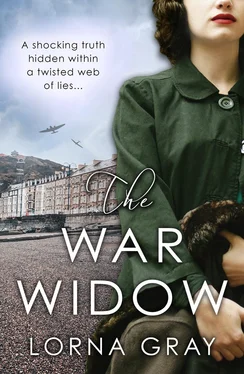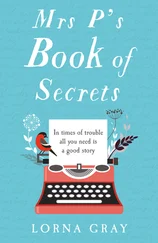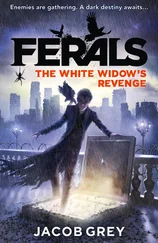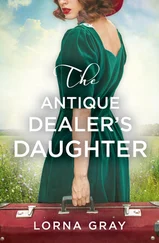An eyebrow lifted. “And does she abbreviate her name too?”
“Millie,” I said with a faint smile. “Much more pronounceable.”
“You’re an artist, aren’t you?”
Again that abrupt delivery that made his question seem somehow like an accusation. With a little sickening swoop from confidence into restraint, I wondered if this was working up to being a parody of my recent conversation in the gorge after all. He must have noticed the sudden tightening of my mouth because by way of explanation he added more gently, “You were painting when I stumbled across you this morning.”
I swallowed the sour taste of suspicion and admitted the truth. “Lovely up there, isn’t it? I might have gone further if I had thought to bring a more useful wardrobe of clothes.”
“No slacks or gumboots?”
He was teasing me. I nodded. “Precisely. I reached the point where the path turns into a very dirty sheep track and then stalled. Painting was my excuse – or camouflage if you will – and at least honour was saved by the fact that the view up there ranks as beyond inspirational.”
“Yes. It does. There’s quite some atmosphere around that hilltop.”
There was a deeper ring of sincerity in his tone. Then I saw him blink at me across the brim of his teacup. I saw his mouth dip as he set the teacup down. There was something in the action that was a familiar kind of self-reproach; like a guilty realisation he’d said too much. I recognised the feeling because I was constantly doing it myself. My attention sharpened abruptly. I said quickly, “You were making notes – are you a writer?”
Then a sudden thought struck me as he looked at me – that sort where you get a rare glimpse of the real person for the first time and it comes with a kind of kick that feels like shock but might just as easily be care. I found myself staring. “You go by the name of A. E. Woolfe …”
“Quick, aren’t you?” He spoke a shade curtly. Then he conceded with a rueful smile, “This is meant to be a research trip but unfortunately I haven’t been able to travel quite as incognito as I would have liked.”
I laughed and saw his eyelashes flicker.
He asked “What’s funny?”
“I was just thinking that it’s a good job I’d said that book was well written, otherwise I’d be feeling very embarrassed at this precise moment.”
Suddenly he grinned. He sat back in his chair. It was like a sudden shelving of reserve. Then he leaned in to rest his forearms upon the table with an eagerness that matched Jim Bristol’s, but with an entirely different energy. An entirely different style of warmth I mean. In his person he was as physically fit as Jim Bristol, as befitted a tall man who clearly liked walking, but without Jim’s excess of muscle so that the whole effect was of restrained strength rather than formidable bulk. As he leaned in his whole posture changed as if his nervousness had suddenly eased, and in a rare moment of not thinking everything was about me and my little drama, I wondered if my earlier theory had been correct and he truly was a little shy.
As if to prove the point, his attention dropped to the salt cellar, toying with it and moving it in a circle around the pepper pot. Then his hand stilled and he said carefully with his gaze resting upon the tabletop, “What about you – you’re travelling incognito too, aren’t you?”
“What do you mean? What makes you say that?” I demanded, thrust abruptly back into unhappy suspicion. I wondered what I would do if it turned out that this man sitting opposite in a pleasant hotel tearoom was actually a different kind of person entirely.
“No reason,” he said, “just an impression I got, that’s all.” He was still playing with the salt cellar and he carefully set it back into its place beside its peppery companion before lifting his head again. His mouth gifted me a quick glimpse of a reassuring smile. “Natural assumption based on nothing more than solidarity between artists. If I’m in hiding then so must you be.”
I gave a short laugh then and turned my head aside under the guise of being distracted by the earnest discussion between the waitress and the patrons at the next table so that he needn’t see the workings of my mind. Then I dared to glance at him again and the expression on his face drew my mouth into a sheepish smile. “Comparing me with the great A. E. Woolfe? That’s setting me a little high I should think – no need for incognito when you’re an unknown.” And then, lulled by the answering crease that touched the corners of his eyes, I foolishly added, “And this isn’t really a painting trip anyway.”
“No?” he asked. “What is it then?”
I hesitated. I actually wavered for a moment between sense and further stupidity. But then I heard myself only say, “I’m sorry to sound mysterious but I’d rather not speak about it, if you don’t mind.”
To many this would have been the perfect encouragement to pry but I was astounded to find that with this man at least, this was not the case. He simply sat back in his chair and said calmly, “Fair enough. You needn’t tell me anything you don’t want to. After all, why should you when—”
“—I don’t know you from Adam?”
“Quite,” he said. And then he smiled at me.
Adam Hitchen was as good as his word. By degrees our conversation returned to the safer ground of his books and my artwork, though given my general intention of remaining aloof from my fellow guests, it was perhaps a little startling to find myself willingly telling him about my gradual rediscovery of inspiration in the year since my divorce. I was also struck by how astute he was in his observations on the difficulty of regaining lost creativity. There was no sympathy – even on a normal day I wouldn’t have wanted that – but absolute understanding that must come from a creative mind who had faced his own challenges during the turmoil of the war.
I had barely painted through the war years and hadn’t particularly wanted to. I had been far too busy hosting patriotic exhibitions in the little Cotswold gallery that had been my home and putting in my hours as a married woman at the WVS canteen; and if I had painted, what would I have used as my inspiration? The bleak horror? Or would I have become one of those artists pretending that all was as it should be and beauty could be found in all the usual places?
Now though, there was hope again. I had moved away in the course of my separation and subsequent divorce and in all honesty it was an escape from the emotional barrier that had begun chipping away at my creativity long before the dramatic changes of a world war. I was of course careful to make no mention of where I had been living, or even the name of the northern gallery where I now worked and had recently had a minor exhibition and, to Adam’s credit, he didn’t ask.
In return he told me something of his own experiences while undertaking the research for his current novel. I tried not to feel like I was quizzing him because to be honest, it didn’t feel particularly like he had been quizzing me. His first had been released before the war. His second was penned during the six months’ leave after Dunkirk and the last had been a thoroughly chaotic affair jotted in note form on any scrap he could find in the lull between manoeuvres in Malta, Italy and Greece, and hastily thrashed into shape and published almost as soon as he had returned.
This one, he told me, was being allowed to take a rather less disorganised course and his research was thorough. Although that apparently still presented its own difficulties.
“Research is a problem?” I asked doubtfully. I felt like I’d missed a point.
I had. There was a trace of that smile again. “The last two were set in the area around home. It was inescapable when I was away and home was all I could think about. But I was demobbed about fifteen months ago and life has settled into something of its new rhythm and now the whole of the British Isles is supposedly my muse. Unfortunately in a fit of optimism I’ve managed to set this book in the depths of Wales just for the time when it has suddenly become very socially unpopular to go tearing about the countryside racking up the miles, even if it is running on my own relatively legitimately saved cans of fuel. I’ve had to visit this area twice so far this year chasing threads and locations.”
Читать дальше












